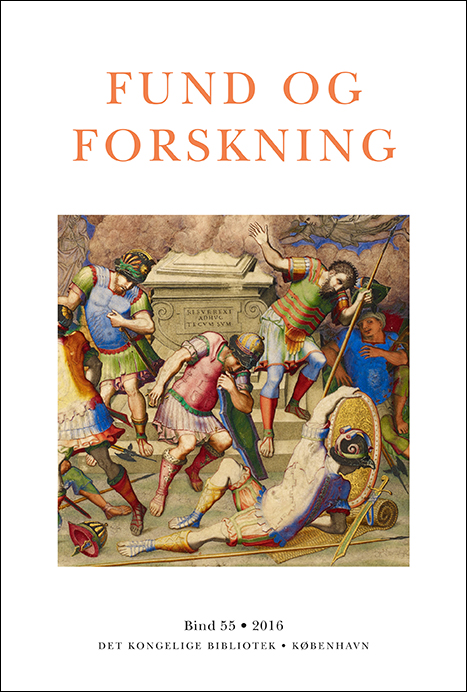Knud Rasmussen og grønlandspolitikken
DOI:
https://doi.org/10.7146/fof.v55i0.118918Resumé
Knud Michelsen: Knud Rasmussen and Greenland politics
It is the general view that the polar explorer Knud Rasmussen (KR) was only involved in Greenland politics to a limited extent, i.e. the policies which Denmark as a colonial power exercised in Greenland. However, in reality, that was not the case at all. The misunderstanding has arisen firstly because the sources have not been studied in sufficient detail, secondly because KR’s opinions on Danish policies have not been given the weight they are due, and thirdly because the background for his often unconventional methods of operation has either been overlooked or simply not acknowledged.
KR’s political activities manifest themselves in particular in the following contexts: after his return from the Danish Literary Expedition (1902–04), in connection with a lecture tour in West Greenland in 1909, during his participation in the Greenland Commission in 1920, in a series of articles published the same year, in a speech to the assembled Danish parliament in 1925, and during his appearance in connection with the Eastern Greenland Case in The Hague in 1933. All these are mentioned in the article in order to create an overview of how KR’s views developed. Throughout is the role which he assumed for himself as spokesman for Greenlanders and polar Eskimos, a role which at the same time prevents a more party-political or ideological involvement. In this role, he often expressed critical views of the colonial administration, largely in relation to both business policies and the lack of progress in introducing autonomy/self-government. After 1918, another political role becomes important: that of acting as a bridge-builder between Denmark and the Greenlanders. This, which partly conflicted with his role as spokesman, is behind the fact that, from the late 1920s, it is possible to observe an approximation between KR’s views and official Greenland policy, not least associated with the collaboration with Danish Prime Minister Thorvald Stauning.
In particular, the article refers to a comprehensive report which, on the basis of the lecture tour in 1909, was prepared for the Danish Ministry of the Interior. The report has only recently been found, and contains a long story that looks extensively at KR’s highly charged political views, the colonial administration’s reaction to them and how some of KR’s views could be exploited by others, including the Norwegians in the Eastern Greenland Case in 1933.
As the article shows, many people wanted to cite KR to support their own views. He therefore had to navigate carefully in order not to be caught up in the Danish debate and fail in his role as spokesperson. However, he was not only a spokesman, but nurtured his own vision of how Greenland should develop, linked to his role as a bridge-builder. And it was this which, at the end of the day, was the most important. Therefore, he was not a nation-builder as well.


